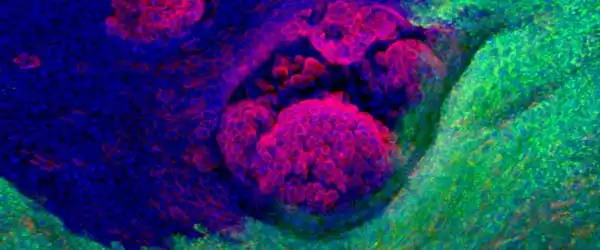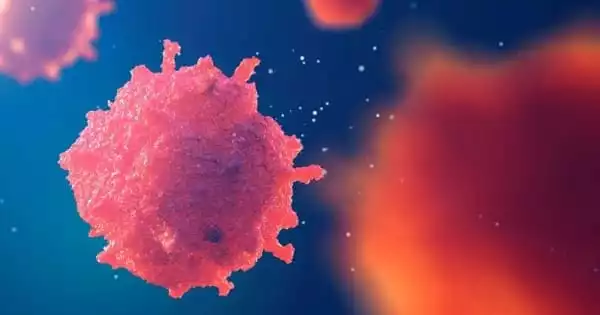A non-cancerous (benign) esophageal tumor is a growth that does not spread to other parts of the body. A non-cancerous esophageal condition is a change in esophageal cells that is not cancer. Non-cancerous tumors or conditions are usually not fatal. Esophageal cancer is treatable if detected early; learn how to recognize the symptoms. Every year, over 17,000 new cases are reported. When it is detected early, minimally invasive treatment options that are effective in defeating it can be considered.
The normal human esophagus contains a high number of mutations, but tumors are uncommon because mutant cells eliminate early tumors. Cells with mutations can outcompete early tumors in the mouse esophagus, preventing them from developing into cancers, according to new research.
The normal human esophagus is a patchwork of cells with mutations, referred to as mutant clones. The Wellcome Sanger Institute, the University of Cambridge, and collaborators used cutting-edge 3D imaging techniques and mouse models to visualize microscopic tumors at an earlier stage of development than was previously possible, allowing researchers to discover an unexpected role for mutant clones in tumor prevention.
Cells carrying mutations can out compete early tumours in the mouse esophagus, so they never make it into cancers, new research has shown.
The study, published in Nature, demonstrates that having a high mutant clone burden creates a highly competitive environment in which microscopic early tumors struggle to grow before being swept out of the tissue by the surrounding mutant cells. Despite this, some early tumors survive and can progress to esophageal cancer.
Understanding the mechanisms that keep the vast majority of these newly formed microscopic tumors from developing into cancer will provide new insights into disease prevention. Over the course of a person’s life, all tissues in their body accumulate mutations. There is a high density of these mutant clones in the esophagus, where they compete for space to survive.
While the majority of mutant clones contain cancer-causing mutations, the rate of tumor formation is lower than expected, implying that other factors are preventing cancer growth.

The Wellcome Sanger Institute, the University of Cambridge, and other collaborators were able to demonstrate in this study that early tumors (up to 100 cells) struggle to grow in the competitive environment created by the presence of highly competitive mutant clones carrying more advantageous mutations.
This study demonstrates that the survival of early tumors in mice is dependent not only on the mutations they carry, but also on the mutations in neighboring normal tissue. Furthermore, it demonstrates that, while some mutations can cause cancer, other mutant clones can have a tumor suppressive role that is independent of the body’s immune system. These findings help to explain why there is a relatively low cancer rate in comparison to the extremely high number of mutant cells.
To gain a better understanding of the development of esophageal cancer, more research into whether the same interactions are seen in human tissue, which mutations lead to cancer cells being successful in this aggressive environment, and the mechanisms underlying this is required.
Dr. Bartomeu Colom, Senior Staff Scientist at the Wellcome Sanger Institute and the study’s first author, stated: “The study of the esophagus’s highly competitive environment, as well as how cells interact and evolve to survive there, has provided new insight into how the surrounding cells influence the ability of early tumors to progress in mice. If we fully understand these interactions, we may be able to develop new methods to prevent early tumors from developing into cancers.”
Dr. Albert Herms, author and Wellcome Sanger Institute Postdoctoral Fellow, stated: “Adult tissues contain numerous barriers that cancer cells must overcome in order to progress from the initial accumulation of mutations to the development of cancer. We discovered a new mechanism of cancer protection used by esophageal tissues in this study, which is the competition for space between cancer-driving cells and their neighbor mutant cells.”
Dr. Phil Jones, Senior Group Leader at the Wellcome Sanger Institute and the MRC Cancer Unit at the University of Cambridge, stated: “Prior to our findings, it was unclear how cells in the esophagus could contain so many cancer-causing mutations and not develop tumors at a higher rate. Our research sheds some light on this mystery by demonstrating that these clones can engulf and remove early tumors in mice, resulting in a protective effect. Future research can build on this to try to figure out why some of these tumors turn cancerous.”





